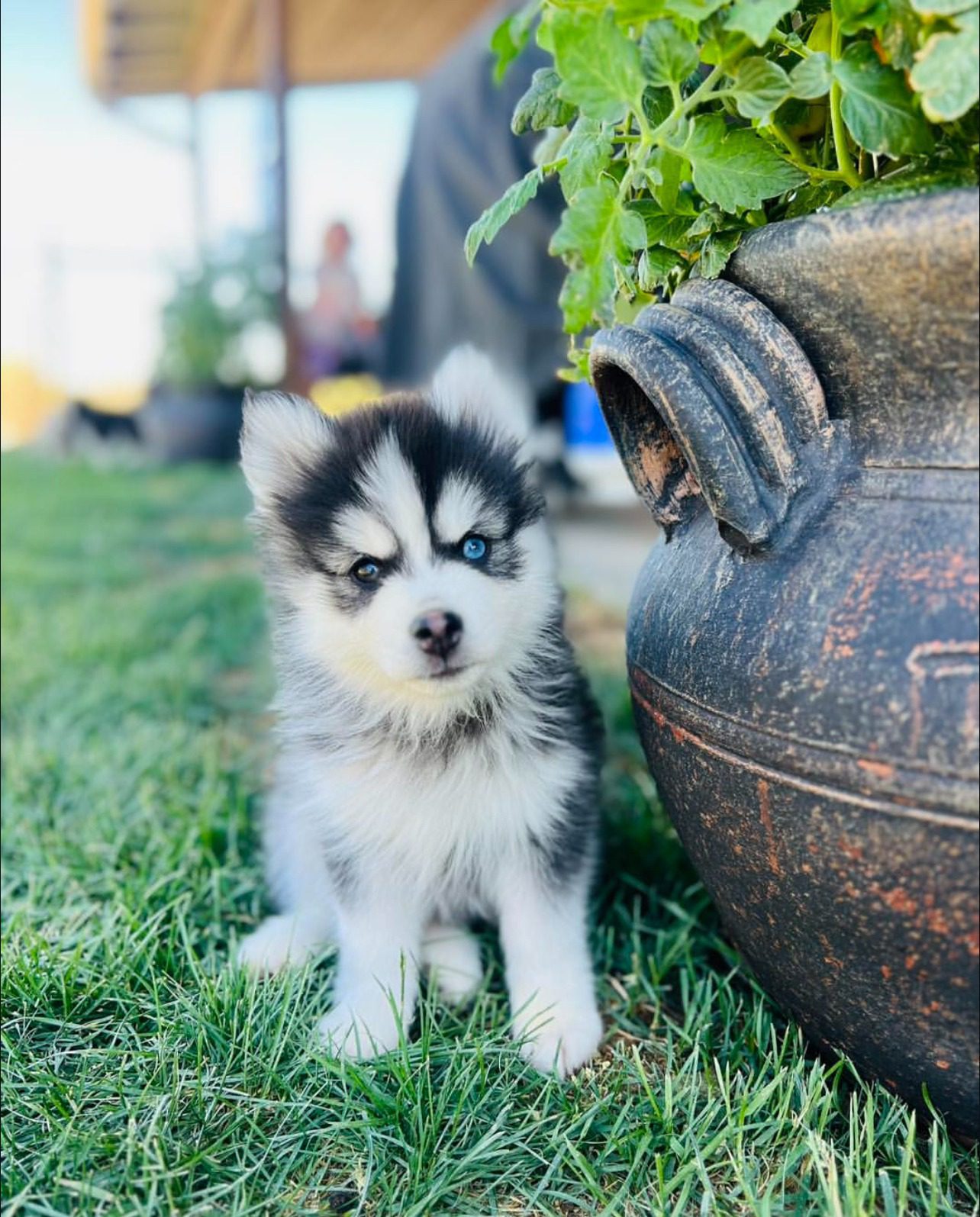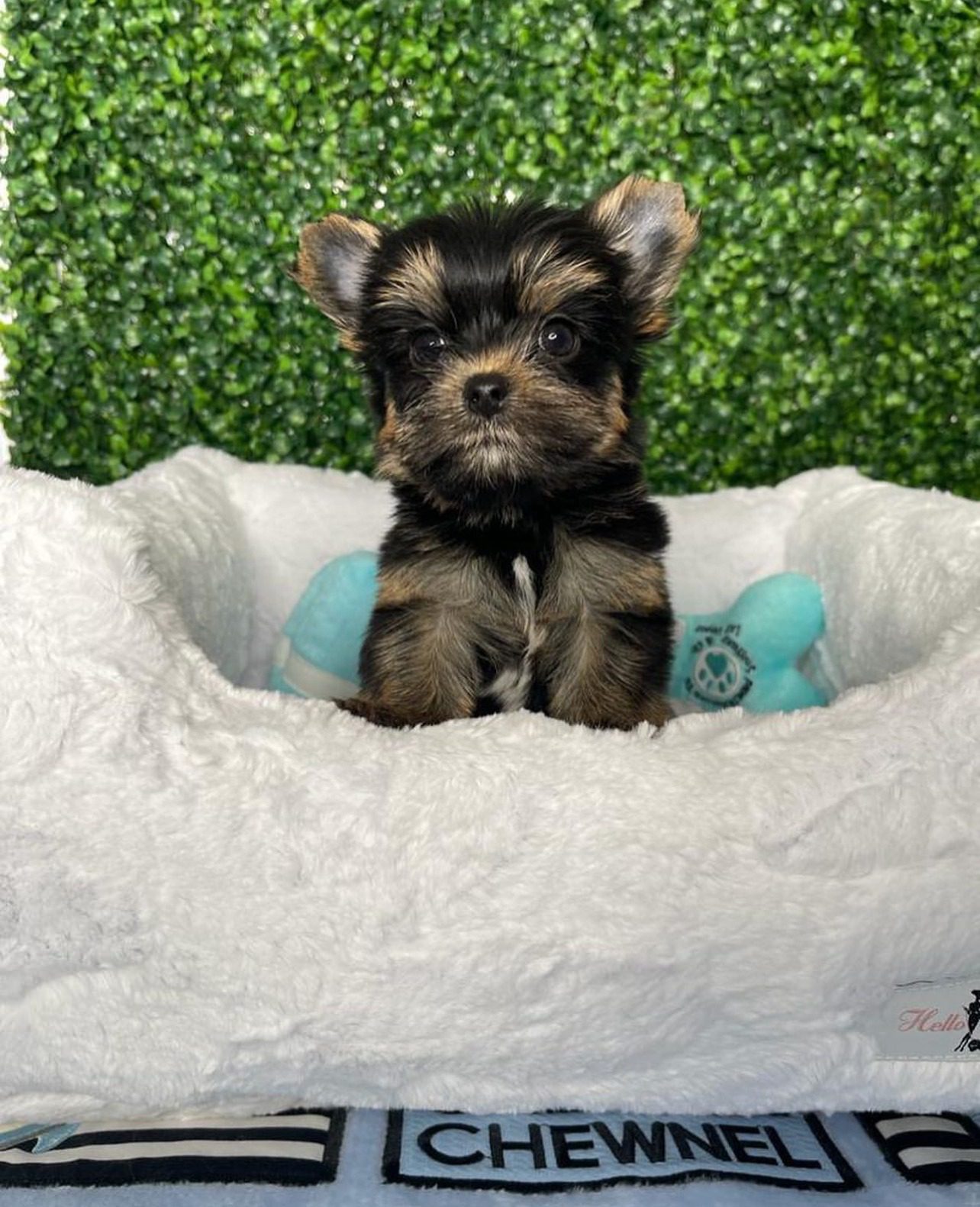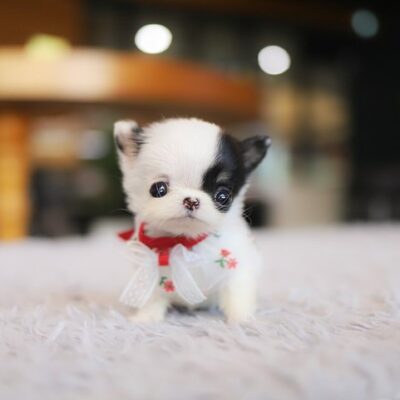About Stella
| Availability |
|
| Gender |
|
| Age | 9 Weeks |
| Transfer of Ownership | Full Transfer |
| Champion Bloodline | Companion Bloodlines |
| Vaccination | Complete Vaccination |
| Mode of Shipment | Air Shipping/Cargo |
| Rabies Shot | Completed |
| Deworming | Completed |
| Microchip | Implanted |
| Veterinary Health Certificate | Issued |
| Health Guarantee | Lifetime Health Guarantee |
| Estimated Adult Weight | 6 lbs |
To reserve Stella, a non-refundable $300 reservation fee is required. Secure your puppy today!
Reserve Stella Today
Why we’re the leading puppy adoption service
Your Perfect Puppy
Breeds in every size, color, and temperament
Certified Breeders
Licensed, vetted and committed to our puppies
10-Year Health Commitment
Certified documents, vaccinations, and checkups
Handle with Care Delivery
White glove delivery options to bring your puppy home
Caring Experts
Helping you every step to find your perfect puppy
Chihuahua Breed Info
99% of breeding parents are OFA certified
Premium Teacup Puppies prioritizes health by ensuring that nearly all of their breeding parents (99%) are OFA certified, meaning each dog undergoes rigorous orthopedic evaluations to screen for hereditary issues before entering the breeding program. This proactive approach prevents potential health problems and supports the overall vitality of the breed, ultimately fostering healthier joints, happier lives, and stronger generations.

Puppy Parents with
CERTIFICATION

Puppy Parents with
GUARANTEE
Our Puppies come with 10 Year Health Guarantee
Health is at the heart of everything we do. That's why we offer a 10-year health guarantee on our puppies—a promise that goes beyond a simple policy. It reflects our commitment to long-term wellness, ensuring that every pup is backed by rigorous screenings and care long before any health issues arise. This guarantee is our proactive investment in a future where our puppies enjoy robust joints, vibrant lives, and the enduring vitality that supports strong generations.
What is the difference between a standard Chihuahua and a ‘Teacup’ Chihuahua? The AKC breed standard for Chihuahuas specifies a weight not exceeding 6 pounds. ‘Teacup’ is an unofficial marketing term used by some breeders for Chihuahuas bred to be significantly smaller than this standard, often aiming for under 3-4 pounds, which carries extreme health risks.
Are Teacup Chihuahuas more fragile than standard Chihuahuas? Yes, significantly. Their bones are incredibly fine and brittle, making them highly susceptible to fractures from falls (even short distances), being stepped on, or improper handling. They require constant vigilance to prevent injury.
Why do Teacup Chihuahuas shiver so much? All Chihuahuas tend to shiver, partly due to their high metabolism and small body mass making it hard to regulate temperature, and partly due to excitement, stress, or fear. In extremely small ‘teacups’, this sensitivity to cold and stress can be even more pronounced.
What is a molera (open fontanel) and is it common in Teacup Chihuahuas? A molera is a soft spot on the top of the skull where the bone plates haven’t fully fused. While present in many Chihuahua puppies, it usually closes. In extremely small or poorly bred Chihuahuas, it may remain open into adulthood, leaving the brain vulnerable. It’s more common and riskier in ‘teacup’ lines.
How often do Teacup Chihuahua puppies need to eat to avoid hypoglycemia? Very frequently. Their tiny bodies have almost no reserves, making them highly prone to dangerous drops in blood sugar (hypoglycemia). Young puppies may need feeding every 1-3 hours, including overnight. Owners must know the signs (lethargy, staggering, seizures) and have karo syrup or similar on hand for emergencies.
Do Teacup Chihuahuas have the typical ‘big dog in a small body’ personality? They often retain the classic Chihuahua confidence and feistiness. However, their extreme fragility can sometimes lead to increased fearfulness, anxiety, or defensive aggression (“Small Dog Syndrome”) if not handled gently and socialized carefully.
What are the most serious health risks associated with Teacup Chihuahuas? Beyond hypoglycemia and open moleras, they face increased risks of hydrocephalus, collapsing trachea, heart problems (like patent ductus arteriosus, mitral valve disease), liver shunts, severe dental issues, and bone fractures.
Is the lifespan of a Teacup Chihuahua shorter than a standard one? Often, yes. While well-bred standard Chihuahuas can live 14-18 years or more, the numerous severe health complications associated with extreme miniaturization frequently lead to a significantly shorter lifespan for ‘teacups’.
Are Teacup Chihuahuas good pets for families with young children? Absolutely not recommended. Their extreme fragility poses a huge risk of accidental injury or death from being dropped, squeezed, or stepped on by a child. They are best suited for adult-only homes or those with very calm, older, supervised teenagers.
How much exercise does a Teacup Chihuahua need? Minimal. Very short, gentle indoor play sessions and perhaps brief outings in a secure area (like a purse or carrier) are sufficient. They cannot tolerate much physical activity, and walks can be risky due to their fragility and potential encounters.
How much does a puppy marketed as a ‘Teacup Chihuahua’ typically cost? Prices are often inflated due to the deceptive marketing, ranging from $1,500 to $5,000 or even higher. High prices do not correlate with health or quality; they often reflect the unethical nature of producing such fragile dogs.
Are Teacup Chihuahuas harder to house train? Yes, very small dogs can be challenging due to tiny bladders needing frequent emptying and the difficulty spotting small accidents. Consistency, patience, positive reinforcement, and often utilizing potty pads are necessary.
Why do ethical Chihuahua breeders advise against the ‘teacup’ label? Reputable breeders (like those affiliated with the Chihuahua Club of America) prioritize health and adhere to the breed standard. They know that deliberately breeding for unhealthy, extreme smallness below the standard leads to suffering and serious health problems, violating ethical breeding principles.
Do Teacup Chihuahuas have more dental problems? Yes, fitting a normal set of teeth into an abnormally tiny jaw causes severe overcrowding, retained baby teeth, malocclusion (bad bite), and significantly increases the risk of early and severe periodontal disease. Strict dental hygiene is critical.
Do Teacup Chihuahuas come in both long and smooth coats? Yes, like standard Chihuahuas, those marketed as ‘teacups’ can have either coat type. Grooming needs depend on the coat (regular brushing for long coats, occasional brushing for smooth coats), but handling must always be exceptionally gentle.
How should I handle a Teacup Chihuahua safely? Always use two hands, supporting the chest and rear. Never pick them up quickly or by the legs/scruff. Be extremely mindful of where they are to avoid stepping or sitting on them. Prevent falls from furniture or arms at all costs.
Is socializing a Teacup Chihuahua difficult? It requires extreme caution. Positive exposure to new sights and sounds is important, but interactions with other animals (even small ones) or unfamiliar people must be closely supervised and controlled to prevent injury or overwhelming fear.
Do Teacup Chihuahuas bark a lot? Chihuahuas are known for being alert barkers. This trait is usually present regardless of size. Early training can help manage excessive barking, but expect some level of vocalization.
What is a healthier alternative to seeking a ‘Teacup’ Chihuahua? Look for a responsible breeder who breeds Chihuahuas within the AKC standard (under 6 lbs), prioritizes health testing (patellas, heart, eyes), and produces dogs with good temperaments. Choose a puppy based on health and personality, not extreme size.
Can Teacup Chihuahuas live with other pets? It depends heavily on the other pet’s size and temperament. Calm, gentle cats or other *very* small, calm dogs might be okay with constant supervision. Larger or more boisterous pets pose a significant accidental injury risk.




































